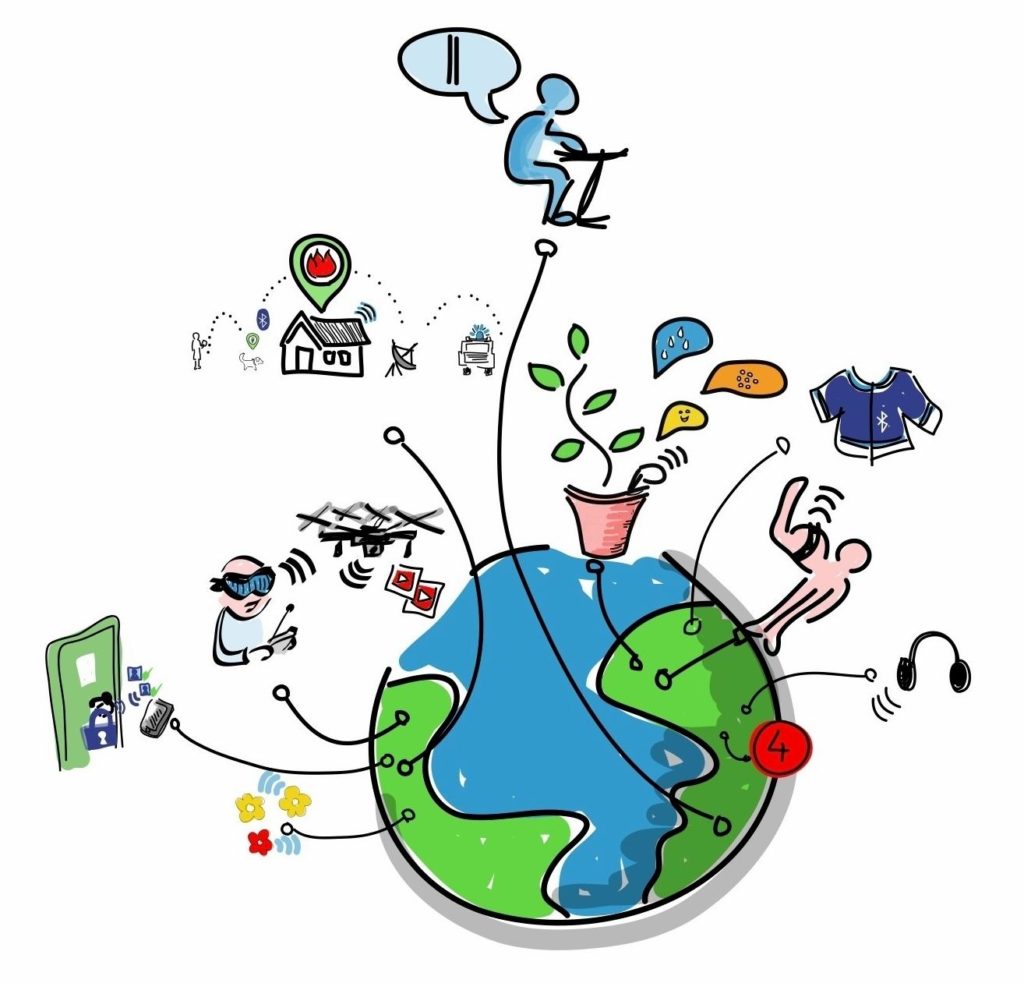
The Internet of Things (IoT). It’s not the most inspiring nomenclature for a digital revolution, is it? Presumably the Internet of Stuff or the Internet of Bits and Pieces were already taken? However, there’s a lot more to the IoT than a clumsy name, in fact it essentially represents the most startling and influential impact of the whole digital revolution.
Internet of things
IoT originally was used to represent anything that had an Internet connection, but it’s more recent meaning is essentially anything connected to the Internet that shares digital information without continuous human intervention. You could be digital refusenik and still have dozens of these devices in your life, for example a smart electricity meter that automatically tells the power company of your usage, or a chip in your car engine that alerts the manufacturer when it needs a service. Increasingly, it will become virtually impossible to lead a normal life without being connected to the IoT.
In many ways this will undoubtedly be a great boon, making our lives easier, simpler, and safer; if your smartwatch is connected to your health provider’s servers and alerts them to the dangers of, say, a possible heart arrhythmia, that could save your life. However, what if years later you’re denied an insurance policy, or even employment, because that data has, legitimately or otherwise, been broadcast? What if a hacker accesses your energy smart meter and extrapolates your daily routines from its data, calculating the most likely time for you to be out of the house?
Security
The question of security when everything from your refrigerator to your hairdryer is connected to the Internet will be paramount. Samsung have estimated that there are 7.3 billion devices connected to the IoT that have no or insufficient security. Not only does this present the types of dangers referred to above, but it can also provide portals for viruses, hackers etc. to access your system. We all know that a chain is only as strong as its weakest link; you’ve doubtless got your work computer fully up-to-date antivirus software and firewalls – have you given the same consideration to your IoT-linked smart TV? It is quite likely to be connected in some way to the rest of your systems. Enormous amounts of our personal data will be accessible to numerous actors through the IoT, and Cambridge Analytica and numerous other scandals have demonstrated time and again that large corporations should be trusted with personal data about as far as one could throw an elephant, and an elephant wearing heavy trousers at that.
Connectivity
Another question is just how much connectivity do we really need? Are we handing over too much responsibility to our smart devices? So, your fridge can tell you that you need to pick up yogurt on the way home as you’re out – was it really that hard to remember that in the past? What will be the consequences for our cognition and memory if we allow smart devices to start doing all our thinking and remembering for us?
There is no doubt that the IoT has enormously exciting potential in many areas, especially healthcare, energy efficiency, smart transportation, etc. The two principal questions that need to be addressed, and addressed quickly, are how far do we want it to take over our lives – the perpetual question with technology, not can it be done, but should it be done – and how can we ensure our security while using it? At the moment, a lack of standardization and regulation regarding IoT networks should give us pause for thought before we blithely embrace this next stage of the digital revolution or allow it to creep up on us unheralded.